Regerative Supply Chains in:
The Ecuadorian Andes
An Ancestral Protein, Re-discovered
Exec Producer: Ricky Echanique / MIKUNA
Narration: Bri Gunzy
Film: Sebastian Davila
Music: Danilo Arroyo
Ecuadorian Andes
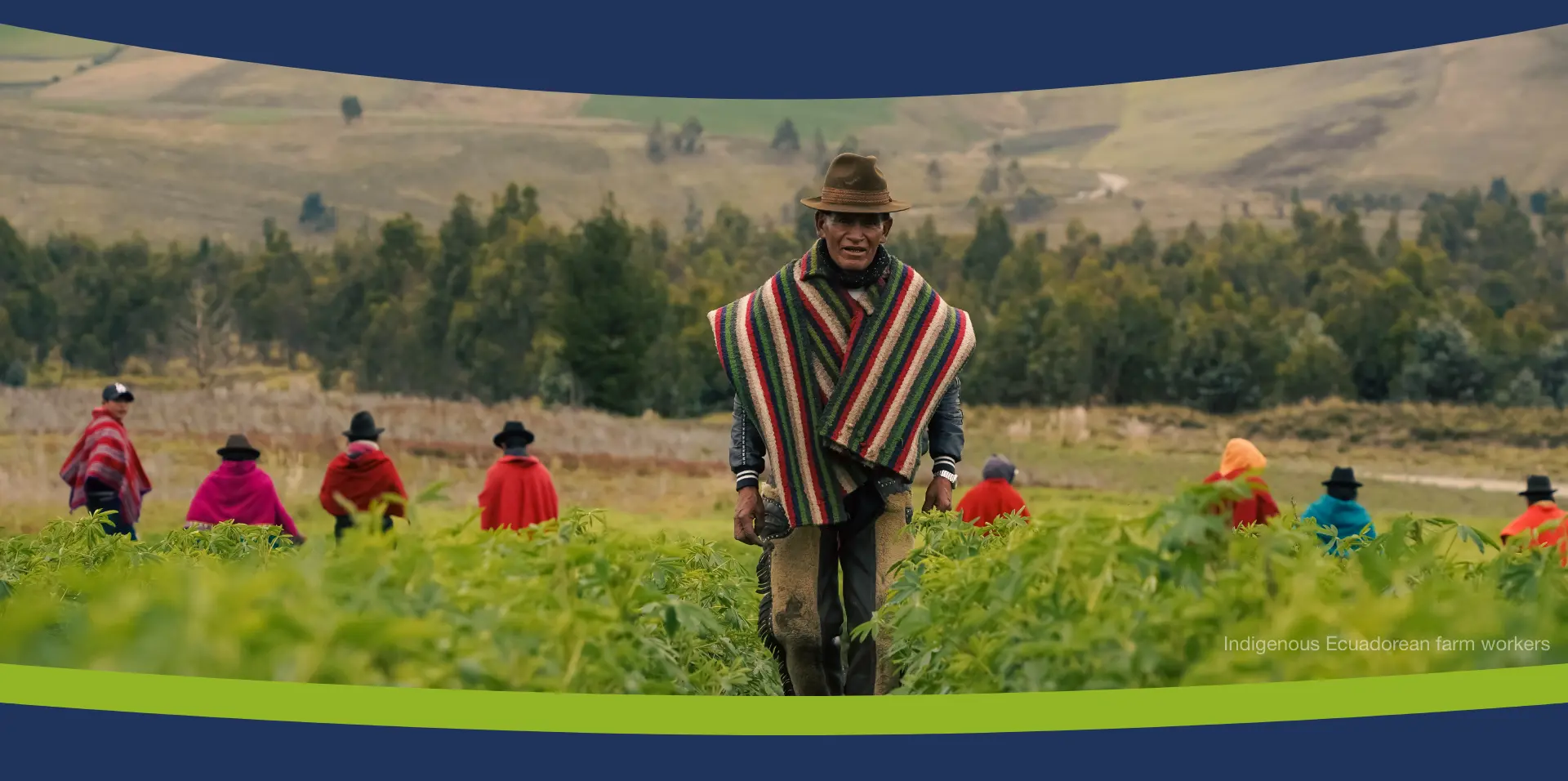

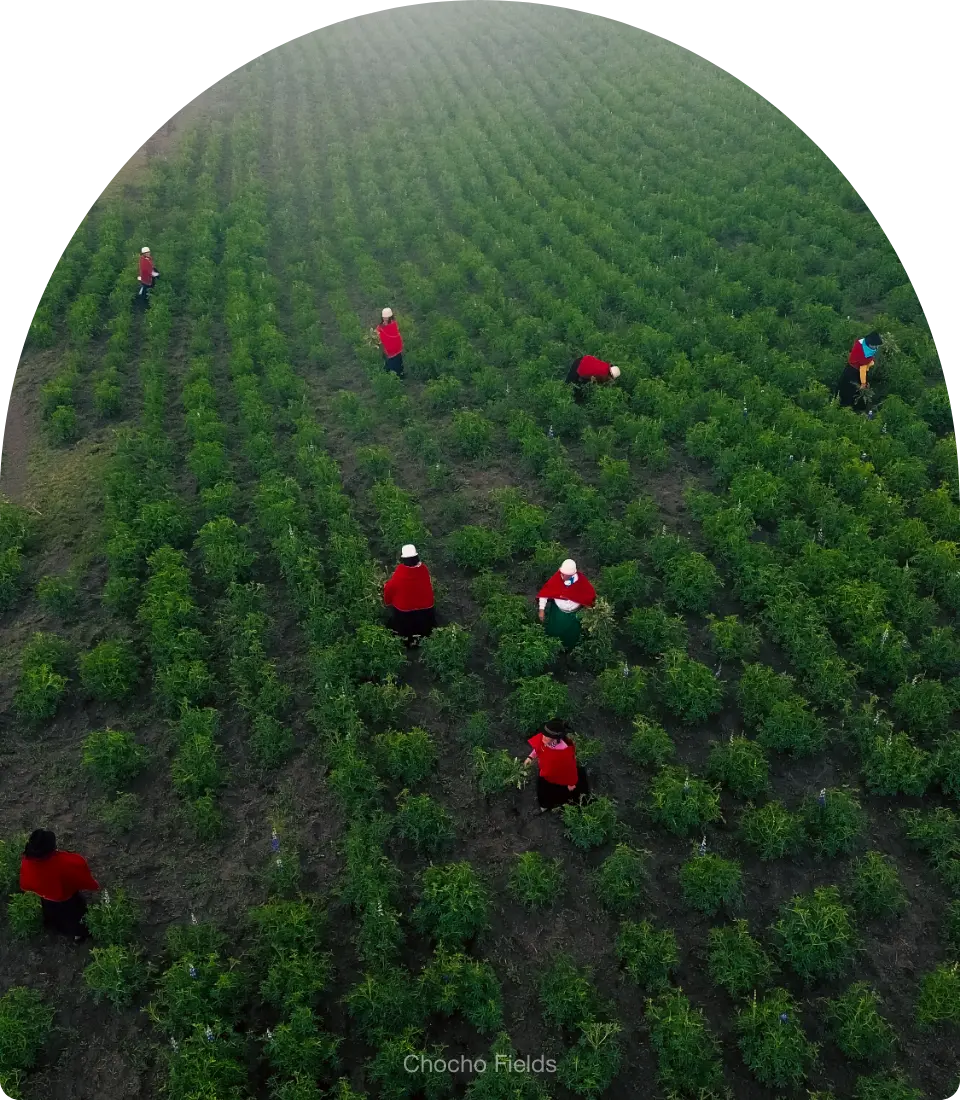
Archaeological evidence confirms that chocho was cultivated and used by pre-Inca societies, including the Nazca and Tiahuanaco, well before the rise of the Inca Empire (1200-1500 AD). Yet, during the colonial and republican era (1500-1850 AD), chocho consumption declined and almost disappeared due to the introduction of European crops, along with colonial policies favoring cash crops, and social stigmas associating it with indigenous communities.
Despite this, indigenous groups among the Andes preserved its genetic diversity, valuing its resilience in high-altitude, drought-tolerant conditions and nitrogen-fixing capabilities for farming.
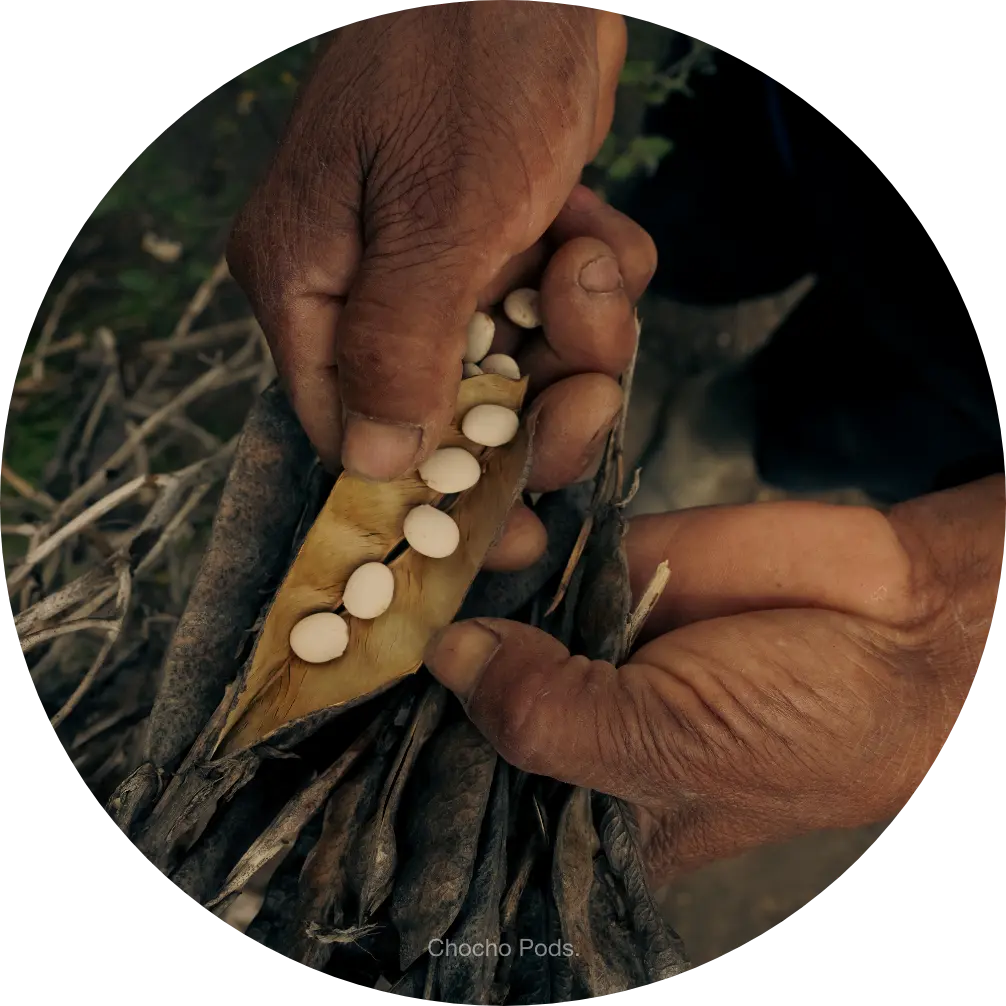
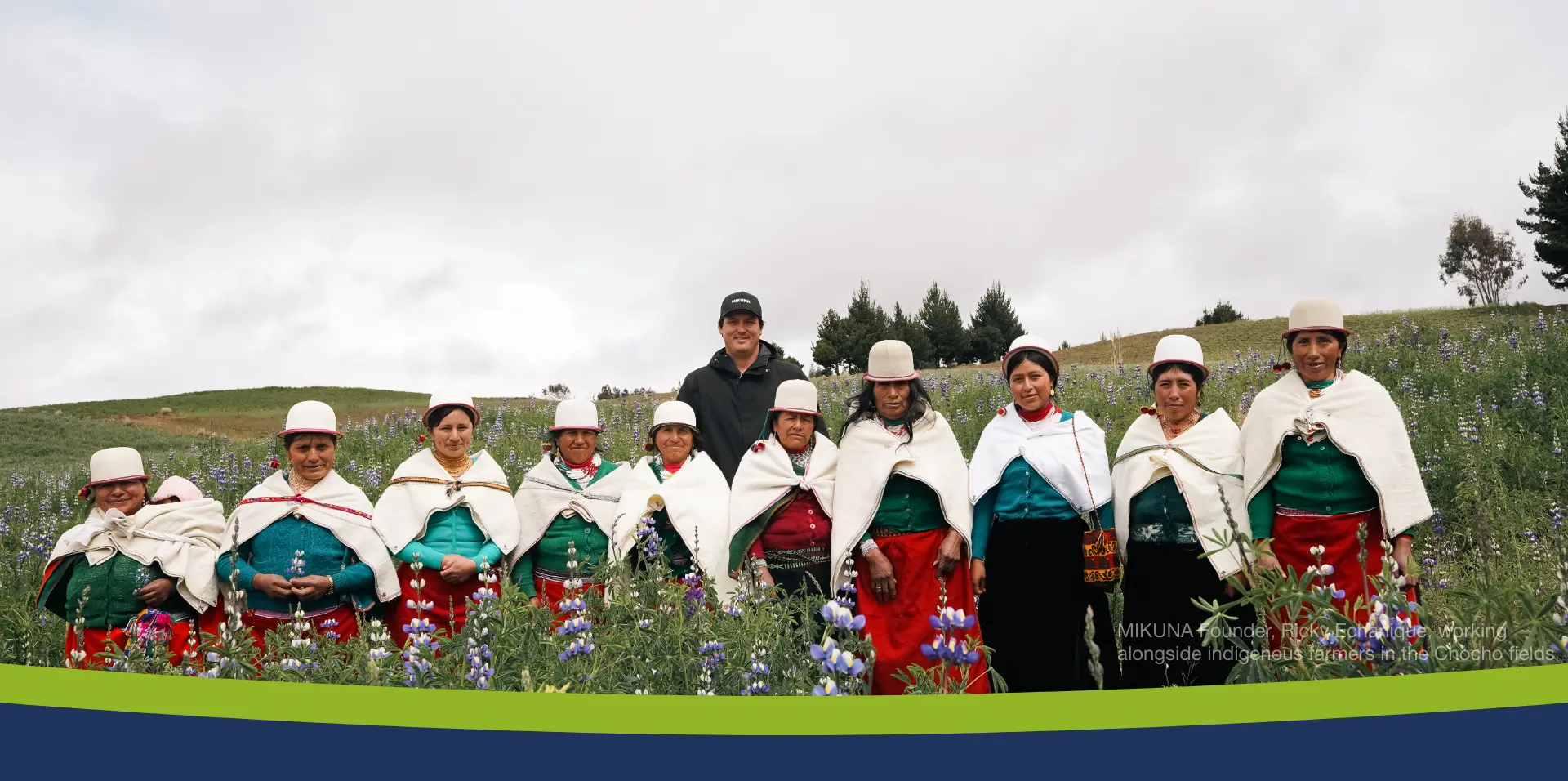
Indigenous Uprising
From this experience, a clear purpose emerged: to support and stand in solidarity with these farmers – an ethos that became the heart of his mission and the DNA of MIKUNA.

The name MIKUNA comes from the ancient Kichwa word meaning “to nourish the body through food.”
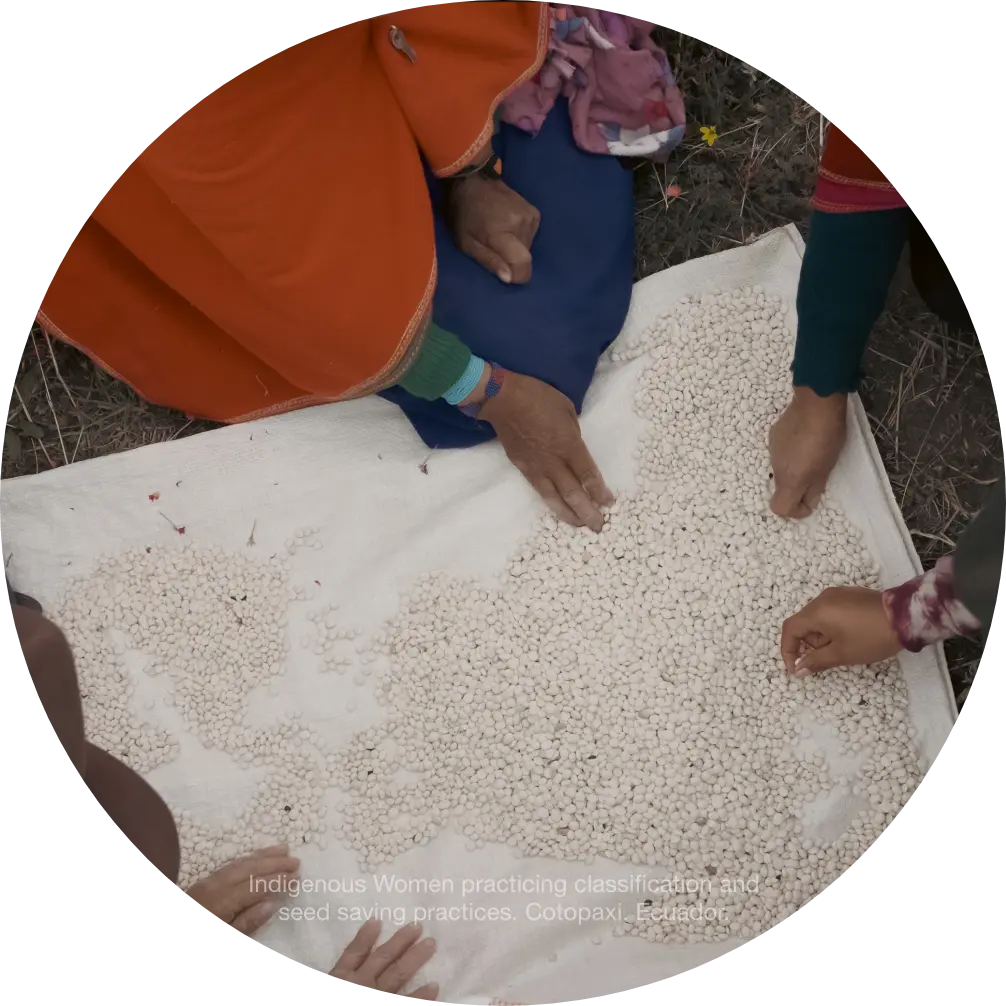
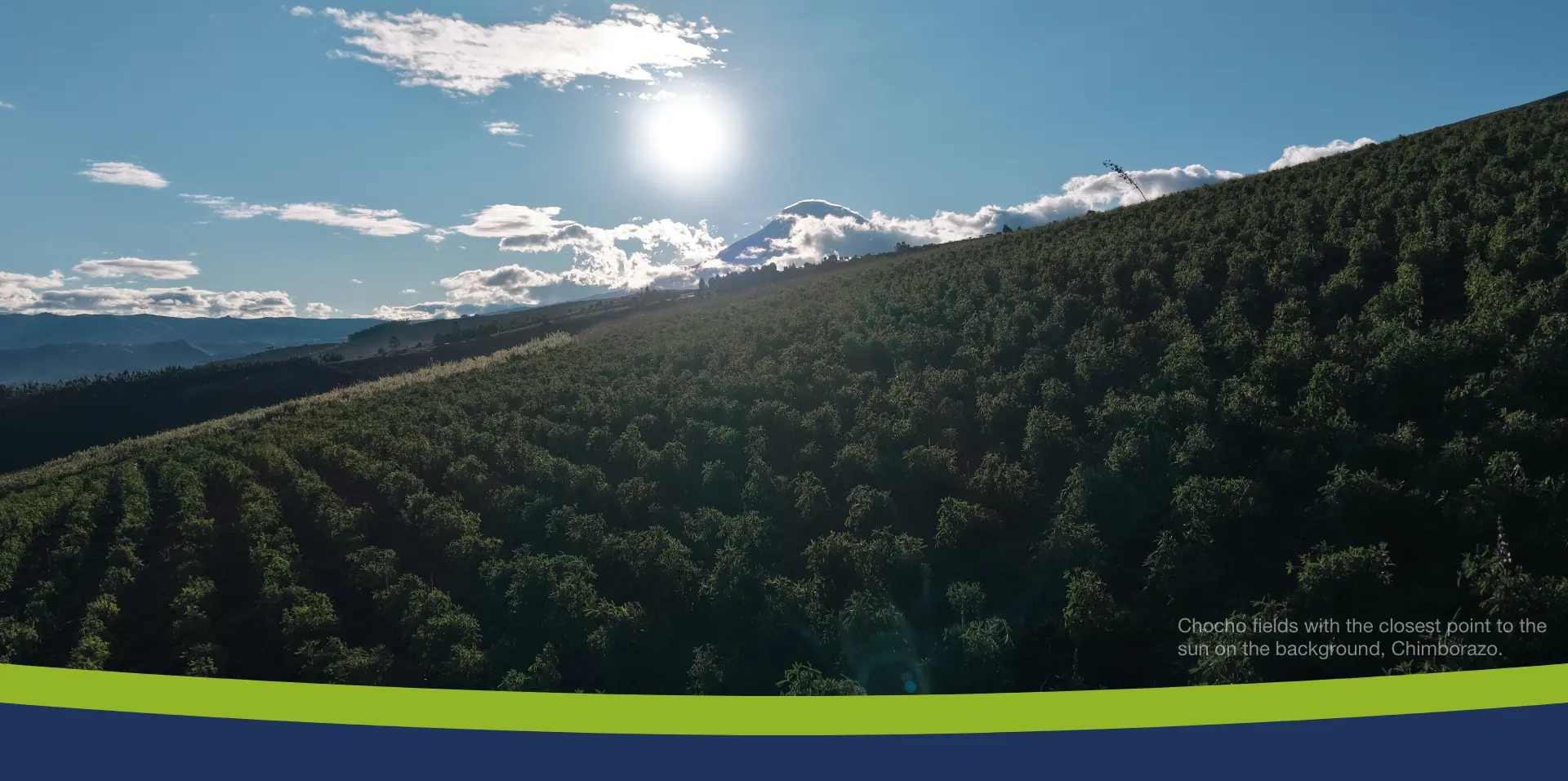
It Begins and Ends with the Soil
From Ricky’s perspective, some of the gravest drivers of deforestation and environmental destruction stem from humanity’s relentless pursuit of a single macronutrient: protein. In the Amazon, vast tracts of rainforest are cleared for soy cultivation and cattle ranching—two of the leading causes of deforestation in the region. Meanwhile, illegal fishing and whaling threaten the delicate ecosystems of the Galápagos and marine reserves around the globe. In the United States, the consolidation of animal agriculture has concentrated millions of animals into fewer, larger operations, often at the expense of animal welfare and with little regard for regenerative or sustainable growing practices. For Echanique, the solution lay in reimagining how we produce protein—not through extraction, synthetic substitutes, or modified foods designed to mimic nature, but by working in harmony with it. A model rooted in reciprocity, not depletion. And the key to that solution? The soil—and what grows from it, and how it is grown. This is where chocho emerges as a key environmental ally.
Chocho fixes atmospheric nitrogen through a symbiotic relationship with Rhizobium bacteria, contributing up to 400 kg per hectare (2.47 acres) back into the soil post-harvest. Used as a rotational crop, chocho improves yields by 44–188% when compared to other monocrops tested such as potato or quinoa. It requires minimal tillage before planting, reducing erosion and soil disturbance. It also generates 40–50 tons of green mass per hectare, delivering an impressive 1,750 kg of raw protein per hectare, making it one of the most efficient sources of protein per acre on the planet (X) . Chocho is drought tolerant, land efficient and water wise. It offers a real opportunity to reduce bothCO2 emissions and water use—delivering high-protein nourishment while helping regenerate the ecosystems we depend on.
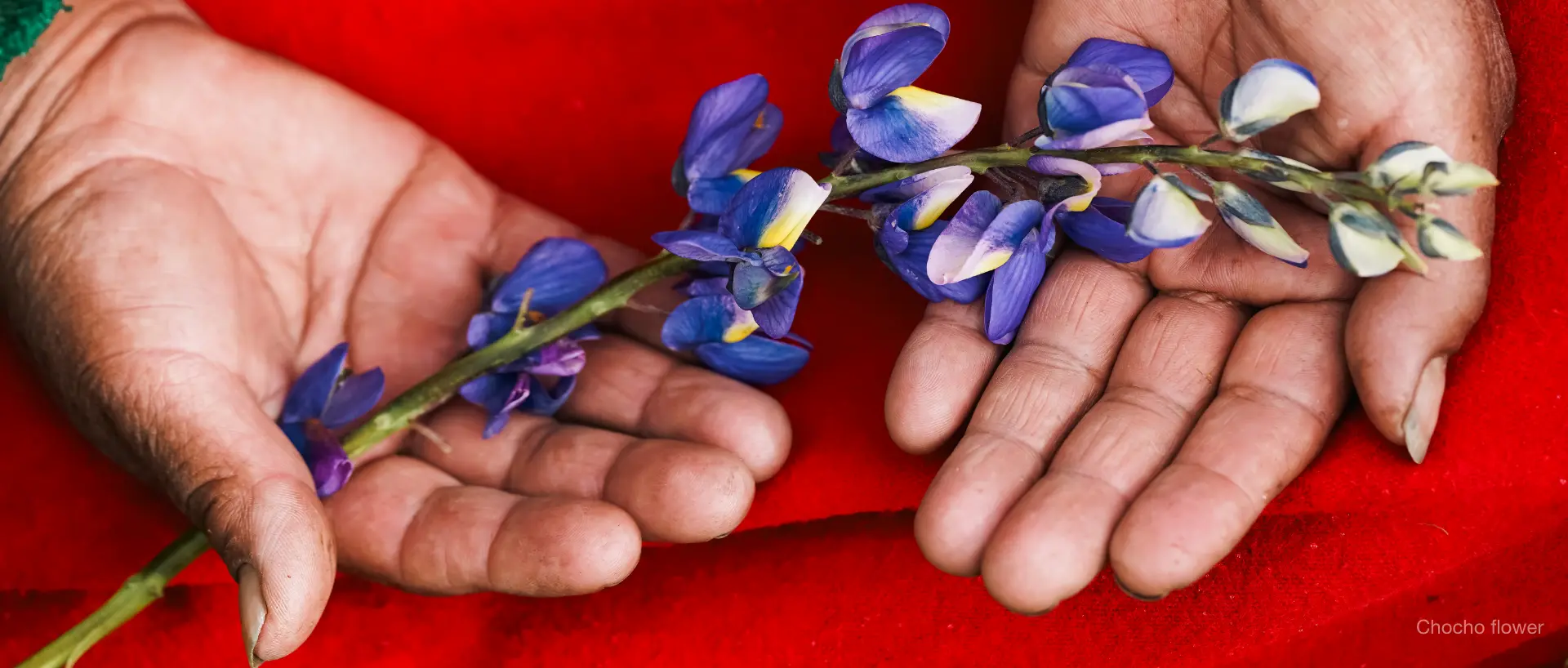

Rooted for Health, Body and Soul
Beyond its impressive metrics, chocho offers an intangible yet profound quality: coherence. Grown in living soil by farmers deeply connected to their land, it embodies integrity that our bodies instinctively recognize.
Research consistently shows that regeneratively grown whole foods like chocho are richer in phytochemicals, trace minerals and nutrient density, which bolster immune function and the gut-brain connection.
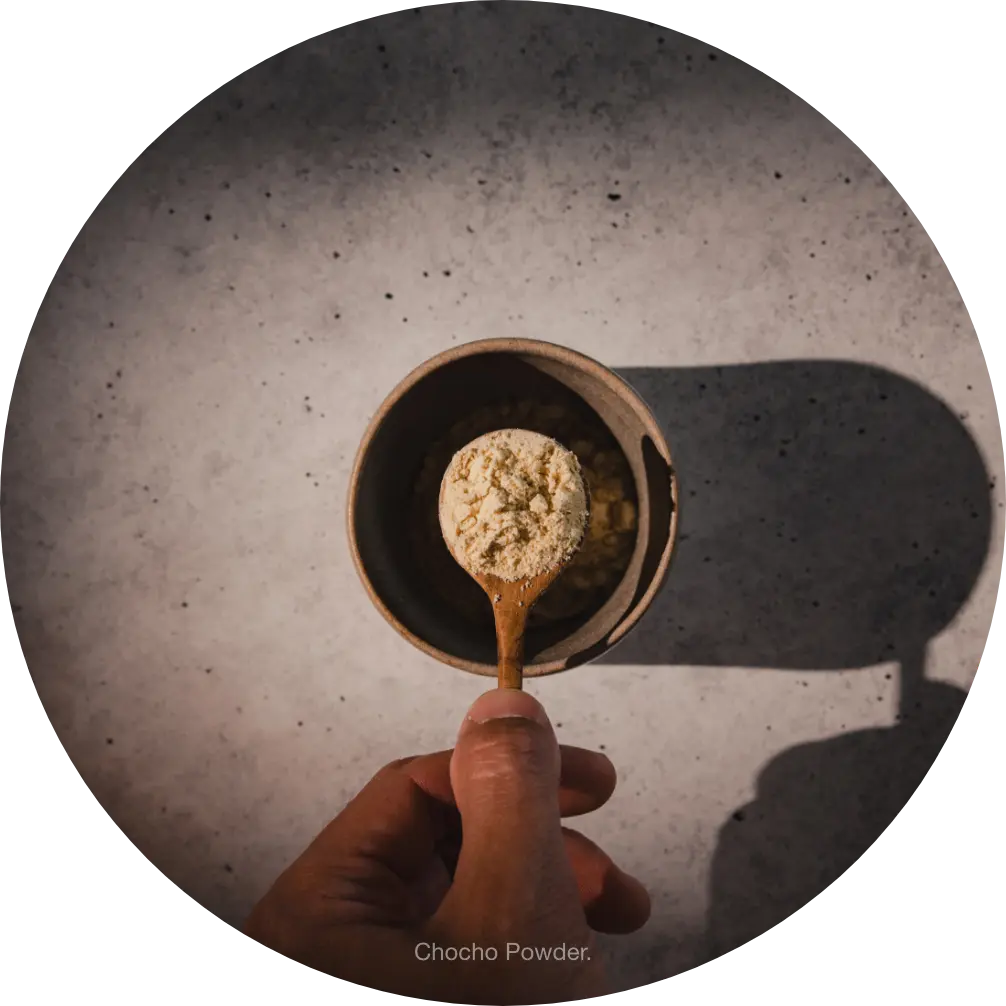
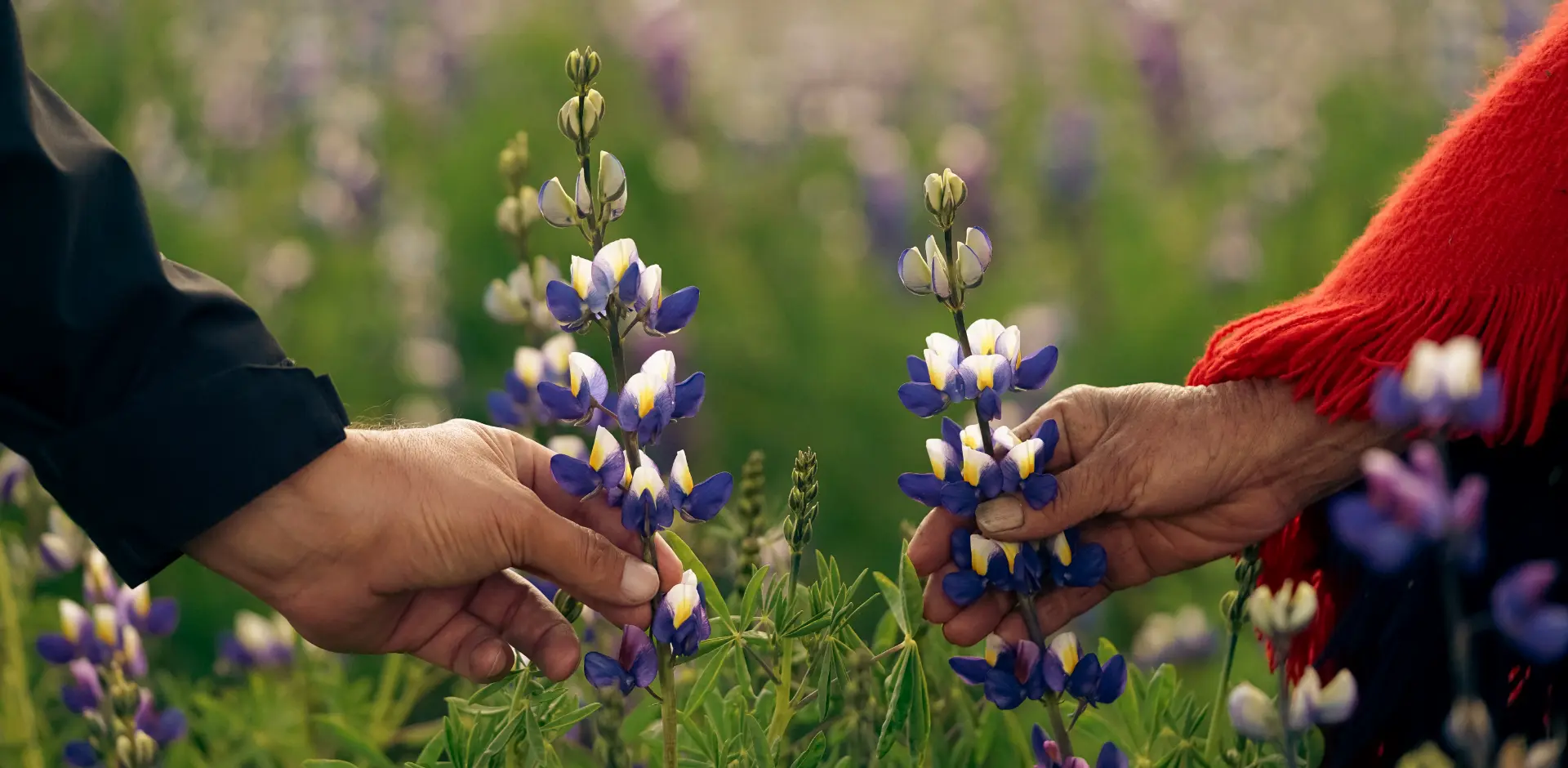
At Mikuna, their aim is to honor ancestral wisdom while working in step with nature’s regenerative, cyclical patterns—to create tangible, edible solutions for the crises of today and the planet of tomorrow. We see this work as a kind of living manifesto, a prototype to be adapted, expanded and enriched by our children and the generations to come.
As Gary Snyder says:
“When you get it right, pass it on.”
Supporting this brand is a small act of reciprocity, nourishing yourself while uplifting the land and communities that sustain it.
20% of every purchase of MIKUNA from this story will be donated to our work at Farmer’s Footprint
Citations:
Mountain Research and Development
Heinz Briicher: Useful Plants of Neotropical Origin and Their Wild Relatives. Page 80-84
A Special
Thanks to:
Narration: Bri Gunzy
Film: Sebastian Davila
Music: Danilo Arroyo
